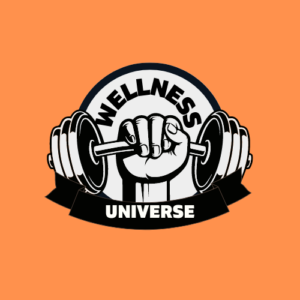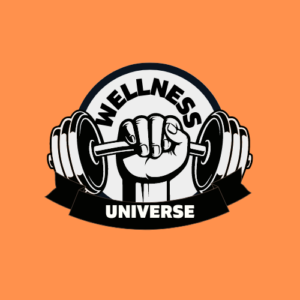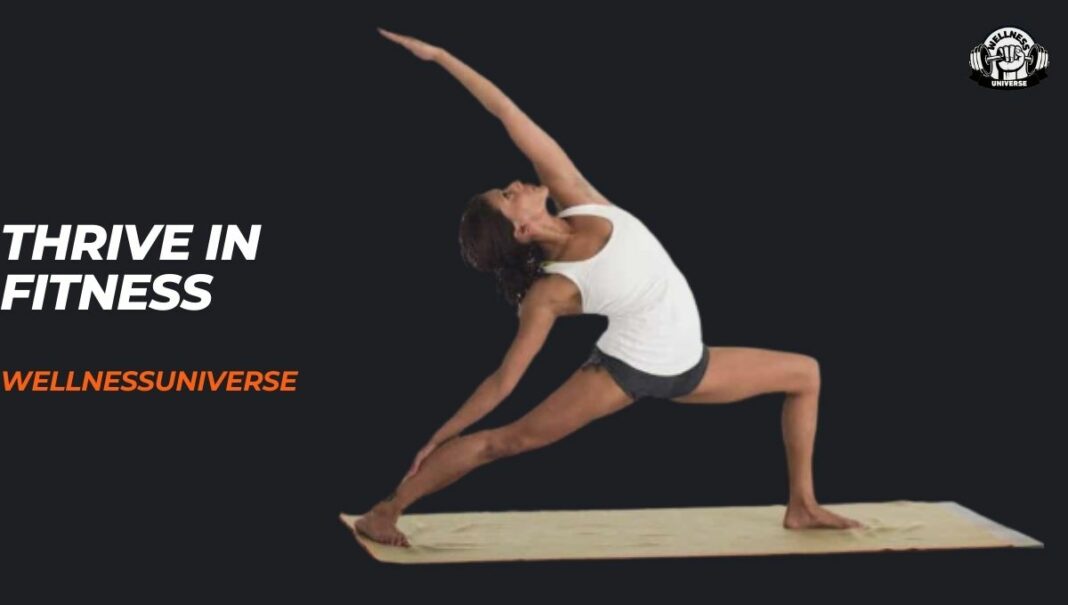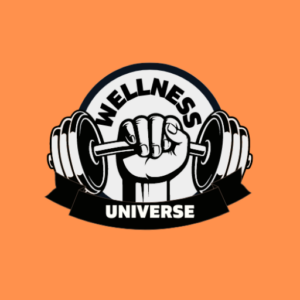When it comes to physical fitness and exercise, the term “body limit” refers to the individual boundaries and capabilities of our bodies. It encompasses the maximum capacity, endurance, and strength that our bodies can handle during various physical activities. These limits are unique to each person and depend on factors such as age, fitness level, overall health, and previous training experience.
Understanding our body limits is crucial for a safe and effective fitness journey. It involves recognizing when to push ourselves to achieve new milestones and when to exercise caution to prevent injuries or burnout. By tuning into our bodies and respecting these limits, we can optimize our workouts and overall well-being.
In the pursuit of fitness goals, it’s common to encounter the belief that pushing beyond our body’s limits is necessary to achieve success. However, this mindset can lead to overtraining, injuries, and setbacks. It is essential to recognize that respecting our body’s limits is not a sign of weakness but rather a wise approach to long-term health and progress.
By acknowledging our limits, we can tailor our workouts to suit our individual needs and capabilities. This approach allows us to make steady and sustainable progress, reducing the risk of burnout and injury. Understanding and respecting our body’s limits also helps us build a positive relationship with fitness, fostering a sense of accomplishment and empowerment.
Throughout this blog, we will delve into the various aspects of body limits in fitness. We will explore how individual factors, such as age, fitness level, and health status, influence our body’s capabilities. Additionally, we will discuss the crucial role of nutrition in supporting our physical performance and respecting our body’s needs.
Understanding proper exercise techniques is equally vital in working within our body’s limits. We will uncover effective ways to gradually progress and expand our capabilities without jeopardizing our well-being. Moreover, we will address the significance of mental well-being in body limit awareness, as our mindset can greatly impact our approach to fitness.
By the end of this comprehensive guide, you will have gained valuable insights into how to listen to your body, respect its limits, and optimize your fitness journey for long-lasting success and fulfillment. Embracing your body’s limits is the key to unlocking your true potential and achieving a harmonious balance between physical activity and overall health. Let’s embark on this empowering journey together.
Understanding Body Limits: What It Means for Your Fitness Journey
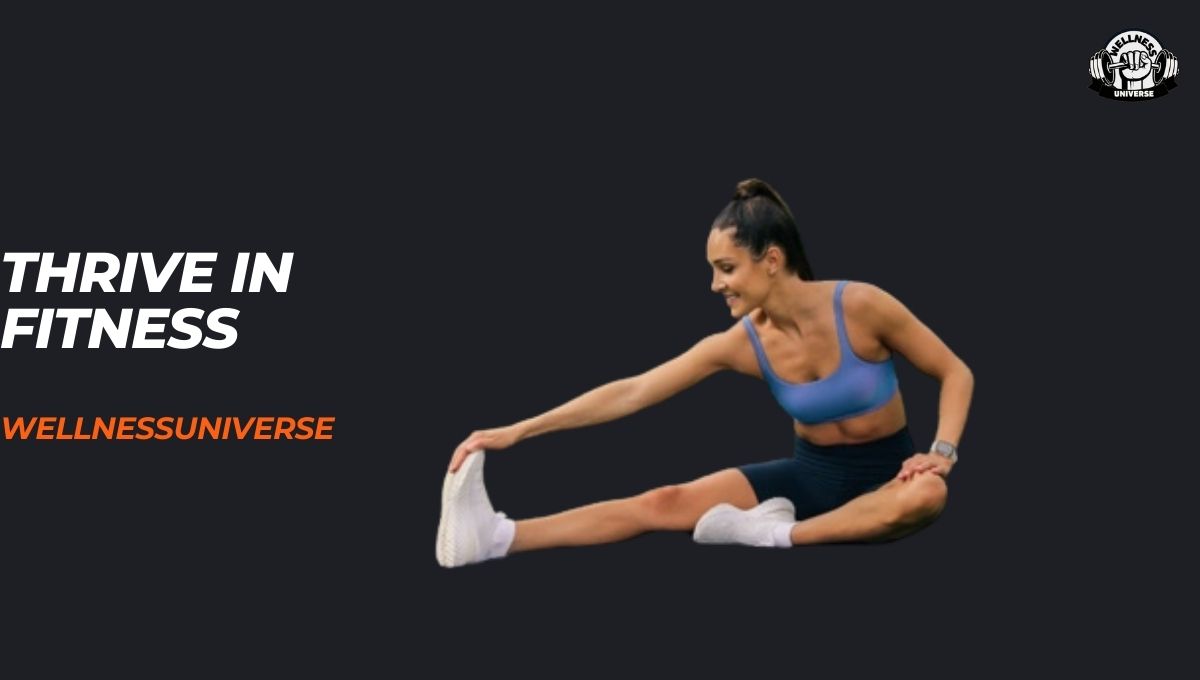
Body limits are the physiological boundaries that define the capacity and capabilities of our bodies during physical activities. Each individual’s body has its unique limits, which can be influenced by various factors, including age, fitness level, genetics, and overall health. Understanding and respecting these limits are essential for achieving fitness goals in a safe and effective manner.
Respecting your body’s limits does not mean settling for mediocrity or avoiding challenges. On the contrary, it means acknowledging where you are in your fitness journey and setting realistic and achievable goals. Pushing beyond your limits without proper consideration can lead to injuries, fatigue, and burnout. By staying mindful of your body’s capabilities, you can make steady progress and prevent setbacks on your fitness path.
Listening to your body is the key to determining your limits during exercise and training. Pay attention to how your body feels during different activities. Notice any signs of fatigue, discomfort, or pain. It’s crucial to differentiate between the healthy discomfort that comes with pushing yourself to improve and the warning signs of overexertion.
Additionally, tracking your progress and performance can help you gauge your body’s limits. Keep a fitness journal to record your workouts, noting any improvements or setbacks. Understanding how your body responds to different exercises and training intensities will provide valuable insights into your limits and areas of potential growth.
Age, fitness level, and individual factors play significant roles in shaping your body limits. As we age, our bodies naturally undergo changes, such as a decrease in muscle mass and bone density. This can impact our physical performance and recovery time. However, with appropriate training and lifestyle adjustments, we can still maintain and improve our fitness levels as we age.
Fitness level also plays a crucial role in defining body limits. A seasoned athlete may have higher physical capabilities and endurance compared to someone new to fitness. Recognizing where you are on the fitness spectrum is essential for setting realistic goals and avoiding undue strain on your body.
Moreover, individual factors, such as genetics and underlying health conditions, can influence your body’s response to exercise. Understanding these factors and working with healthcare professionals or fitness experts can help tailor your fitness routine to match your body’s unique needs.
By appreciating the interplay between age, fitness level, and individual factors, you can gain a deeper understanding of your body’s limits. This knowledge will empower you to make informed decisions, adopt suitable workout routines, and progress effectively on your fitness journey. Remember that your body is an incredible and dynamic tool, and by respecting its limits, you can unlock its full potential for a fulfilling and sustainable fitness lifestyle.
The Consequences of Pushing Beyond Your Body’s Limits
Pushing beyond your body’s limits can have serious consequences for your physical and mental well-being. When you ignore the signals your body sends, you increase the risk of injury and exhaustion. Overexertion can lead to strained muscles, joint problems, and even stress fractures. These injuries can set back your fitness progress and, in some cases, require extended periods of rest and rehabilitation.
Moreover, disregarding your body’s cues can take a toll on your mental health. Experiencing chronic fatigue, constant soreness, and reduced performance can lead to frustration and demotivation. It’s important to recognize that fitness is not a linear journey, and there will be ups and downs. By understanding and respecting your body’s limits, you can create a more sustainable and positive relationship with your fitness routine.
Overtraining syndrome is a condition that occurs when an individual exercises excessively without allowing adequate time for recovery. This syndrome can lead to a variety of physical and mental health issues. Physically, overtraining can result in persistent fatigue, muscle soreness, weakened immune function, and sleep disturbances. It may also lead to an increased risk of injuries and difficulty in making progress with your fitness goals.
Mentally, overtraining can cause irritability, mood swings, anxiety, and feelings of burnout. It may also impact your ability to focus and concentrate. Overtraining syndrome is a clear indicator that you have pushed beyond your body’s limits and need to prioritize rest and recovery.
Recognizing the warning signs of overtraining is crucial for preventing its adverse effects. Some common signs include persistent muscle soreness, difficulty sleeping, changes in appetite, increased resting heart rate, and a decline in performance during workouts. You may also experience irritability, mood swings, and a lack of motivation to exercise.
To avoid overtraining, it’s essential to practice self-awareness and listen to your body. Pay attention to how you feel during and after exercise. If you notice signs of fatigue or an ongoing decrease in performance, it may be an indication that you need to scale back your workouts and allow your body to rest and recover.
Incorporating rest days and lighter training sessions into your routine is essential for giving your body the time it needs to repair and rebuild. Additionally, adopting a periodized training approach, where you alternate between periods of intense training and recovery, can help prevent overtraining and optimize your fitness gains.
Respecting your body’s limits and understanding the consequences of pushing too hard will help you achieve a balanced and sustainable fitness journey. Remember that rest and recovery are just as important as exercise when it comes to achieving your fitness goals and maintaining overall health and well-being.
Safely Expanding Your Body Limits: The Gradual Progression Approach
When it comes to improving fitness and expanding your body’s limits, the key is to adopt a gradual progression approach. Gradual progression means incrementally increasing the intensity, duration, or complexity of your workouts over time. This approach allows your body to adapt and build strength without overexertion or risking injury.
Safe and effective workout progression is especially important for individuals who are new to exercise or returning after a period of inactivity. It’s essential to give your body time to adjust to new physical demands and avoid pushing too hard too soon. By progressing gradually, you reduce the risk of overtraining and increase the likelihood of long-term success in achieving your fitness goals.
There are several techniques and strategies you can use to safely expand your body’s limits and make steady progress in your fitness journey:
- Start with a Solid Foundation: Begin with exercises that match your current fitness level and focus on building a strong foundation. Master proper form and technique before moving on to more advanced movements.
- Incremental Increases: When increasing the intensity or duration of your workouts, do so in small increments. For example, add a few more minutes to your cardio sessions or increase the weight lifted gradually.
- Rest and Recovery: Allow ample time for rest and recovery between workouts. Your body needs time to repair and rebuild after exercise, especially as you challenge yourself with new activities.
- Cross-Training: Incorporate cross-training into your routine. Cross-training involves participating in different types of exercises to work for various muscle groups and prevent overuse injuries.
- Listen to Your Body: Pay attention to how your body responds to exercise. If you feel excessively fatigued or notice any signs of overtraining, adjust your workouts or take an extra rest day.
- Incorporate Deload Weeks: Periodically schedule deload weeks, where you reduce the intensity or volume of your workouts. Deload weeks give your body a chance to recover and prevent plateaus in progress.
Setting realistic and achievable fitness goals is essential for respecting your body’s limits and making meaningful progress. Consider your current fitness level, lifestyle, and any limitations you may have, such as previous injuries or health conditions.
Break your long-term goals into smaller, manageable milestones. Celebrate each accomplishment along the way, which will keep you motivated and committed to your fitness journey. Remember that progress may not always be linear, and there will be ups and downs. Stay patient and persistent, and avoid comparing your progress to others.
Working with a fitness professional, such as a personal trainer or coach, can be beneficial in setting appropriate goals and designing a personalized workout plan. They can also provide guidance on proper form and technique to minimize the risk of injury.
By following a gradual progression approach and setting realistic fitness goals, you can safely expand your body’s limits and achieve lasting improvements in your physical fitness and overall well-being. Remember that respecting your body’s capabilities is essential for long-term success and maintaining a healthy and balanced fitness routine.
The Role of Nutrition in Respecting Your Body’s Limits
Nutrition plays a crucial role in supporting your fitness journey and respecting your body’s limits. Proper nutrition provides the essential fuel and nutrients your body needs to perform optimally during exercise and recover efficiently afterward. When you provide your body with the right nutrients, you enhance your overall performance, promote muscle growth, and improve your ability to reach your fitness goals.
A balanced diet that includes a variety of macronutrients (carbohydrates, proteins, and fats) and micronutrients (vitamins and minerals) is essential for optimal health and fitness. Carbohydrates provide the primary source of energy for your workouts, while proteins support muscle repair and growth. Healthy fats are crucial for hormone production and overall well-being.
The foods you eat have a direct impact on your exercise performance, recovery, and energy levels. Consuming carbohydrates before a workout can provide readily available energy to fuel your physical activity. After exercise, consuming a balanced meal that includes carbohydrates and protein helps replenish glycogen stores and aids in muscle recovery.
Adequate protein intake is essential for repairing and building muscle tissue, especially after strength training or intense workouts. Including lean proteins such as chicken, fish, tofu, or legumes in your meals can support your fitness goals.
Hydration is another critical aspect of nutrition that impacts exercise performance. Staying properly hydrated ensures your body can regulate temperature, transport nutrients, and remove waste effectively. Aim to drink water before, during, and after exercise to maintain optimal hydration.
To optimize exercise performance and support your body’s limits, consider the following nutritional strategies:
- Pre-Workout Nutrition: Consume a balanced meal containing carbohydrates, proteins, and healthy fats 1-3 hours before exercise. This provides sustained energy throughout your workout.
- Post-Workout Nutrition: After exercise, eat a meal or snack that includes carbohydrates and protein to aid recovery and replenish energy stores.
- Hydration: Drink water throughout the day and pay attention to your fluid intake during exercise. In hot or intense conditions, consider including electrolyte-rich beverages to support hydration.
- Nutrient-Dense Foods: Choose nutrient-dense foods such as fruits, vegetables, whole grains, lean proteins, and healthy fats to provide essential vitamins and minerals.
- Mindful Eating: Pay attention to hunger and fullness cues, and avoid overeating or undereating, which can affect energy levels and performance.
- Individual Needs: Remember that nutrition needs can vary based on factors such as age, gender, fitness level, and exercise intensity. Tailor your nutrition plan to meet your specific needs and goals.
By prioritizing proper nutrition and staying adequately hydrated, you can respect your body’s limits, enhance exercise performance, and support overall well-being throughout your fitness journey. A well-fueled body is better equipped to handle physical demands and recover efficiently, ensuring you can make the most of your workouts while maintaining a healthy and sustainable approach to fitness.
In Crux
In conclusion, understanding and respecting your body’s limits are fundamental principles for achieving lifelong fitness and well-being. Recognizing that every individual is unique and has varying physical capabilities is essential in developing a sustainable approach to fitness. Body limits encompass a wide range of factors, including physical fitness levels, age, individual differences, and recovery capacities. By acknowledging and honoring these limits, you can create a fitness journey that is safe, effective, and empowering.
Embracing a mindful and sustainable approach to fitness is about listening to your body, being present in your workouts, and making choices that support long-term health and well-being. It’s essential to focus on progress rather than perfection, understanding that each step you take toward your fitness goals is valuable. By respecting your body’s limits, you can avoid burnout, overtraining, and injuries, which are common pitfalls of pushing too hard beyond what your body can handle.
Fitness is not just about achieving specific physical goals; it is a journey of personal growth and empowerment. By recognizing and working within your body’s limits, you are fostering a positive and loving relationship with yourself. Celebrate each milestone, no matter how small, and appreciate the progress you make on your unique path to fitness. Remember that respecting your body’s limits is a sign of self-care and self-compassion, which are essential components of a holistic approach to health and well-being.
As you continue on your fitness journey, let the concept of body limits be your guiding light. Embrace the joy of movement, find activities that bring you happiness, and choose workouts that align with your physical and mental needs. Seek professional guidance when needed and trust yourself to make decisions that support your overall health and happiness.
In conclusion, respecting your body’s limits is not a sign of weakness but a demonstration of strength and wisdom. It allows you to approach fitness in a way that nourishes your body, mind, and soul, leading to a lifelong journey of well-being and personal empowerment. Embrace the uniqueness of your body and celebrate the wonderful journey of self-discovery through fitness within your body’s limitations. By doing so, you will pave the way for a fulfilled and sustainable fitness lifestyle that supports your health and happiness for years to come.
Thank you for joining us on this fitness journey! We hope you found our Beyond Limits: How to Listen to Your Body and Thrive in Fitness? blog insightful and inspiring. Our aim is to provide you with valuable information, expert advice, and motivational content to support you in your wellness endeavors.
Related Post :-
- How To Do Wall Pushups
- Hand Size Demystified
- CrossFit Unleashed
- Barbell Lunges
- Forearm Fortitude
- Kettlebell Circuit
- Power of Personal Trainers
- Down Pull-Ups
FAQs about Body Limit
How can one determine their body's limits during exercise and training?
Paying attention to your body's cues is essential in determining its limits. Listen to how you feel during and after workouts. If you experience pain, extreme fatigue, or reduced performance, it may indicate that you are pushing beyond your limits. Regularly reassess your fitness goals and be mindful of any changes in your body's response to exercise.
What are the potential consequences of pushing beyond the body's limits?
Pushing beyond your body's limits can lead to overtraining, injuries, and burnout. It may cause physical and mental exhaustion, hinder recovery, and negatively impact your overall health. Ignoring your body's signals can result in setbacks, making it harder to achieve your fitness goals in the long run.
How do individual factors, such as age and fitness level, influence body limits?
Individual factors, including age and fitness level, play a significant role in shaping your body's limits. As we age, our bodies may have different needs and recovery capabilities. Similarly, beginners and seasoned athletes have varying physical abilities and exercise tolerances. Acknowledging these factors helps tailor workouts to align with your body's capabilities.
Are there safe and effective ways to gradually expand one's body limits?
Yes, gradual progression is key to safely expanding your body's limits. Gradually increase the intensity, duration, or frequency of your workouts to challenge your body without overwhelming it. Include rest days in your routine to allow proper recovery and prevent overtraining.
What role does proper nutrition play in respecting the body's limits?
Proper nutrition is essential for supporting your body during exercise and aiding in recovery. Adequate nutrient intake provides the energy needed for workouts and promotes muscle repair. Balancing macronutrients and staying hydrated contribute to optimizing exercise performance and respecting your body's limits.
How can listening to the body's signals enhance workout effectiveness?
Paying attention to your body's signals allows you to adjust your workouts accordingly. If you feel energized and strong, you can challenge yourself further. Conversely, if you experience fatigue or discomfort, it's crucial to scale back and prioritize rest to avoid overexertion.
What are the signs of overtraining and exceeding the body's limits?
Signs of overtraining include persistent fatigue, decreased performance, mood changes, sleep disturbances, and increased susceptibility to injuries and illnesses. Feeling constantly sore and struggling to complete routine exercises may also indicate that you are exceeding your body's limits.
Can mental and emotional factors impact the perception of body limits?
Yes, mental and emotional factors can significantly influence your perception of body limits. Stress, anxiety, or pressure to achieve specific fitness goals may push you beyond your actual capabilities. Practicing mindfulness, self-compassion, and realistic goal-setting can help you develop a healthier relationship with fitness.
Is it necessary to consult a fitness professional to understand one's body limits?
Consulting a fitness professional, such as a personal trainer or coach, can be beneficial in understanding your body's limits. They can conduct assessments, tailor workouts to your needs, and provide guidance on achieving fitness goals safely and effectively. However, with self-awareness and attention to your body's signals, you can also develop a good understanding of your limits on your own.

Meet Pradeep Singh, your go-to guide for all things fitness, health, and motivation. With over 7 years in the field, Pradeep brings a blend of expertise and real-world experience to his writing. From workout tips to healthy living insights, he simplifies complex topics, making fitness accessible for everyone. His authentic approach and genuine passion aim to inspire and support your wellness journey. Get ready to embark on a path to a healthier lifestyle with Pradeep as your trusted companion and motivator.
